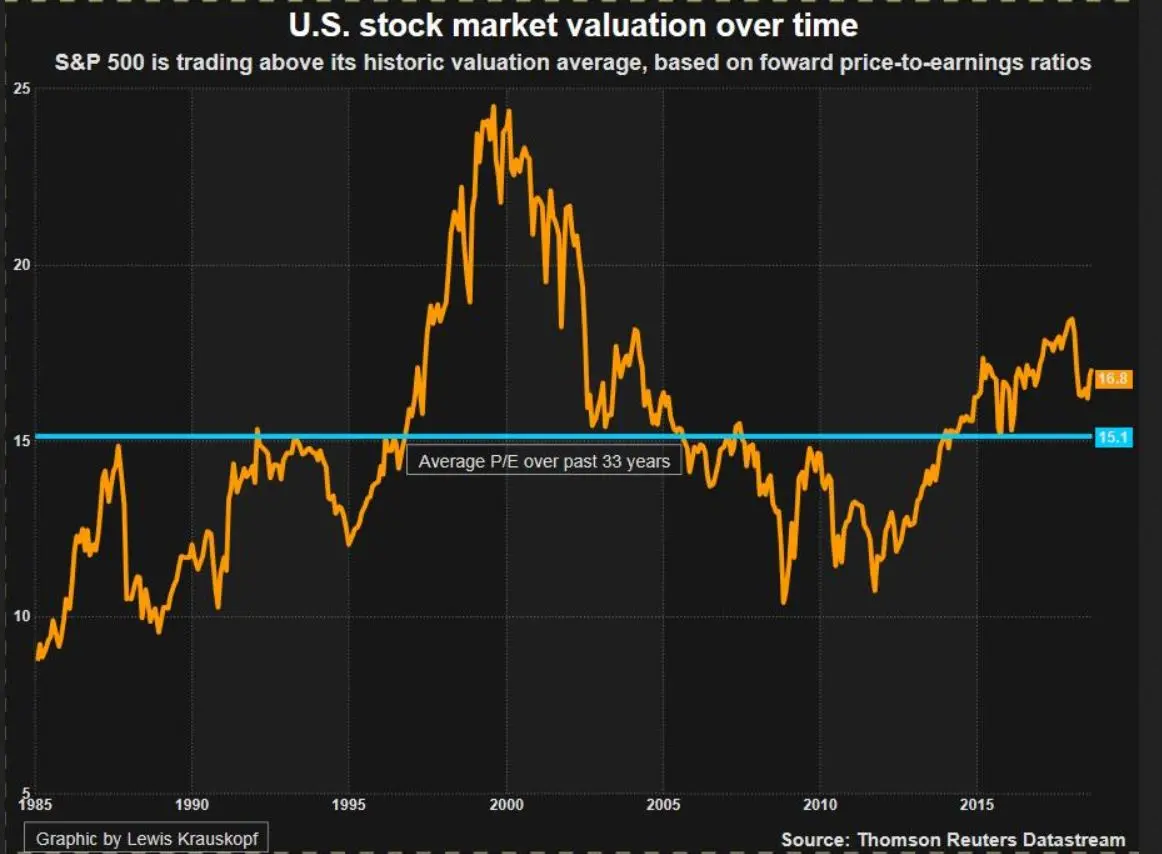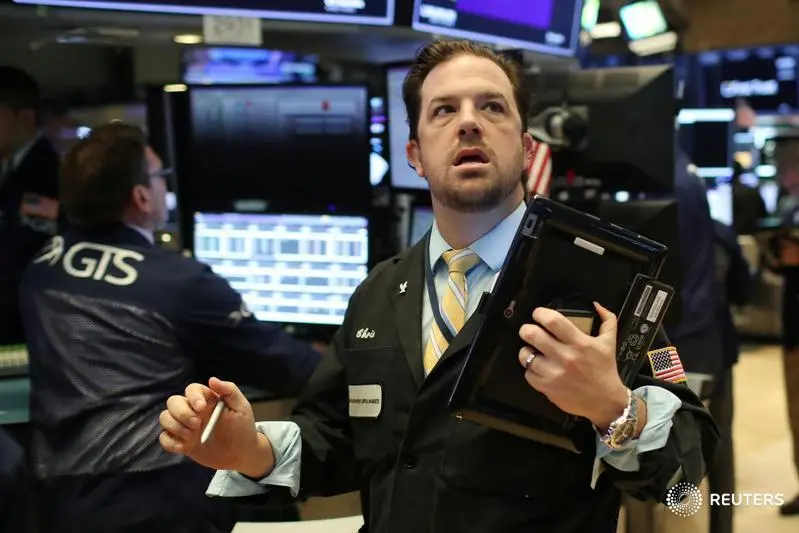PHOTO
Investors are banking on tame inflation and interest rates to support U.S. stock prices and help counter any concerns over an anticipated slowdown in corporate earnings growth next year.
As they have recently, stocks in general are poised to trade at valuations, based on price-to-earnings ratios, higher than they have traded on average since the mid-1980s, investors said.
Yields on U.S. government securities and consumer prices overall have been moving higher, although they remain relatively moderate. Investors said low bond yields mean reduced investment competition for stocks, and relatively subdued inflation supports low interest rates.
“There’s an argument historically with that type of inflation backdrop and rates where they are, that you can justify a higher valuation,” said Walter Todd, chief investment officer at Greenwood Capital in Greenwood, South Carolina.
The ability of stocks to hold relatively high valuations is important because an expected slowdown in corporate profit growth in 2019 could otherwise temper stock returns. Analysts will increasingly focus on next year’s outlook as third-quarter reports arrive next month.
Spurred by corporate tax cuts that took effect this year, earnings of companies on the benchmark S&P 500 index .SPX are expected to climb 23 percent in 2018, and then 10 percent in 2019, according to Thomson Reuters I/B/E/S.
Stocks are commonly valued by their forward P/E ratios, meaning their prices divided by earnings estimates for the next 12 months.
The S&P 500’s average forward P/E over the past 33 years has been 15 times earnings estimates, but the index has traded above that level for more than two years, according to Thomson Reuters Datastream.























